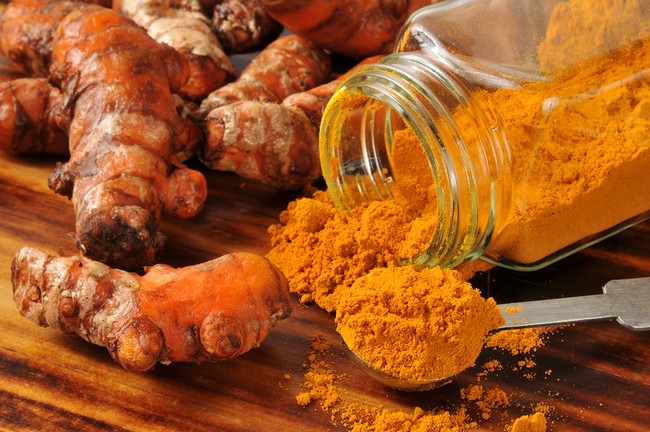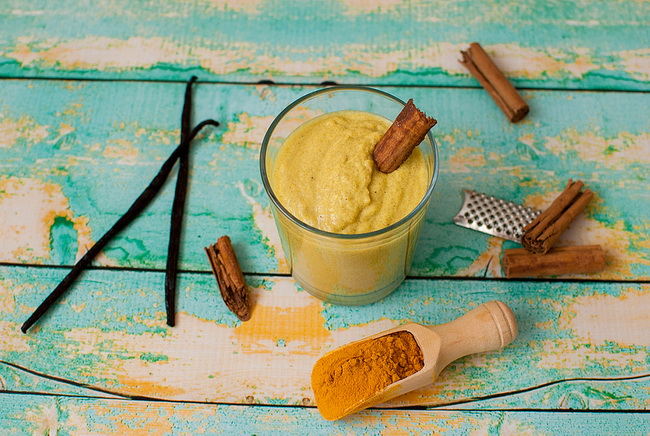- Make It Yourself Lavender Heart-Shaped Bath Bombs!
- 20 Things You Never Knew About “Down There”
- 12 Best Foods For Those Suffering From Arthritis Pain
- 12 Personal Hygiene Mistakes Almost Everyone Makes (Mom Never Told You About #4!)
- 15 Medicinal Plants And Herbs From The Cherokee People
- 12 Mind-Blowing Benefits Of Drinking Coconut Water During Pregnancy
- 12 Outstanding Winter Foods That Won’t Fatten You Up Like A Christmas Turkey
The Truth about Turmeric and Alzheimer’s Disease

Photo credit: bigstock.com
Alzheimer’s disease is a type of dementia, a disorder of the brain that seriously affects a person’s memory to the point that most people cannot carry out even the simplest daily activities. Alzheimer’s is the most common form of dementia for those over the age of 65. Symptoms begin appearing after 60, although there are some cases of early onset of this debilitating disease that are considered to be due to a specific genetic defect.
Although the exact cause of Alzheimer’s is not yet known, what is known is that it involves the parts of the brain that controls our memory, thoughts, and language. There is no cure. This disease progresses slowly and first shows itself as signs of forgetfulness, such as continually losing your keys, or placing things in strange places, such as placing house keys in a shoe for “safe keeping.” As the disease progresses, many patients become paranoid, begin hiding things, seem to believe that their family members or doctors are out to harm them. Later on, patients forget even long time family members and spouses, and no longer remember their own names or birthday. They no longer remember what day it is, what year it is, or even what season it is. Eventually they can no longer do everyday tasks such as brush their teeth, comb their hair, or dress themselves, and sometimes they no longer even recognize food. Most people with Alzheimer’s eventually require comprehensive care around the clock.
Researchers currently believe that there is no one specific cause of Alzheimer’s, but rather that there are several factors that seems to affect each person differently. Age is one common factor in this disease, with the incidence of Alzheimer’s doubling about every 5 years for those over 65. It’s possible that there is a gene that is centrally involved in the development of Alzheimer’s but that gene remains to be discovered.
Continue to Page 2

Photo credit: bigstock.com
One risk factor that scientists are aware of is the presence of a protein called apolipoprotein E, which is a naturally occurring protein in the body that helps to carry cholesterol in the blood. Scientists know that there are two forms of this protein, one that protects the brain and the other that does the exact opposite.
A brain with Alzheimer’s has two important abnormalities. First, amyloid plaques and neurofibrillary tangles. The plaques we speak of are clumps of protein known as beta amyloid and they are found in the tissue between nerve cells in the brain and degenerating pieces of neurons.
The neurofibrillary tangles are twisted bunches of filaments that are found within the neurons themselves. In Alzheimer’s patients, these filaments are twisted into helical filaments that collect in what are called tangles. This means that the microtubules do not work properly and eventually die off. This results in a collapse of the neuron’s transportation system, so that communication between nerve cells is at first dysfunction, but then later dies entirely.
Studies have suggested that the active ingredient in turmeric, called curcumin, can actually enter the brain, bind to, and then destroy the plaque that is present in those with Alzheimer’s. According to one study performed at Vanderbilt University, curcumin appears to be small enough that it can pass through the blood-brain barrier. This barrier is the body’s natural defense to keep out pathogens. Unfortunately, it has also been a major problem when it comes to developing treatments for this condition.
Continue to Page 3

Photo credit: bigstock.com
In this clinical setting, scientists found that inhaled curcumin was actually more effective than an intravenous injection in a study done with mice.
Although an actual treatment using turmeric has yet to be developed, turmeric has a wide variety of health benefits for humans. Turmeric is known to be an excellent antiseptic, antioxidant, and anti-inflammatory that works wonders in the body.
Current drugs only address its symptoms and attempt to slow the progression of this disease, nothing more. Turmeric has been used as medicine for untold centuries. Although many of the recent research studies have focused on its effects against cancer, curcumins potential to fight Alzheimer’s comes from its ability to arrest harmful enzymes and molecules.
Other studies show that turmeric is effective against liver damage, the formation of cataracts, and helps to protect the body from the damage of stroke and heart attacks, while it’s super anti-inflammatory effects can help keep Alzheimer’s disease at bay.
Some studies have shown that turmeric can help to avoid the evolution and progression of amyloid beta plaque buildup in the brain. One study found that using a combination of curcumin and rosmarinic acid stopped the formation and extension of these beta amyloid fibrils. This lead the Japanese research team to note that turmeric could be a key agent for the development of therapeutics for those suffering with Alzheimer’s disease, or the prevention of it. Read more about turmeric regenarating the brain.
Continue to Page 4

Photo credit: bigstock.com
Amyloid plaques are well-known for causing oxidative damage to the brain. Free radicals, generated by these plaques, and other factors such as inadequate energy supply, abnormal changes in the natural antioxidant defense in the body, as well as inflammation, all play a role in the development of Alzheimer’s disease. This means that anti-inflammatory compounds with antioxidant properties, such as turmeric, can offer a biochemical support for those with Alzheimer’s.
Researchers at the University of California at San Diego wrote in one study that they believed that a treatment involving antioxidants was a very promising approach for slowing the progression of this disease, perhaps even to the point of stopping it altogether.
SEE ALSO: Can Coconut Oil Save You from Alzheimer’s Disease?
The destructive oxidation and inflammation that are inherent in those with Alzheimer’ disease are the reason why antioxidants, such as curcumin, are so important in our diets. Curcumin fights off free radicals, which prevents their destructive nature, stopping the damage they can cause in the very earliest stages of this disease. Antioxidants not only kill free radicals in the brain, but the powerful anti-inflammatory mechanisms in turmeric are yet another reason why this popular spice might be so effective in the fight against Alzheimer’s. Turmeric’s powerful fighting duo of antioxidants and anti-inflammatory make this spice a natural means of fighting some of the main causes of this degenerative disease.
References:

































Rajen
Jul 11, 2015 at 2:56 pm
how can we increase turmeric. curcumin in our diet…
Gabe
Jul 12, 2015 at 1:46 pm
Curry, which has turmeric as a main ingredient, is a flavorful way of adding turmeric to your diet. Fresh turmeric, root as a whole food, may be the best way to increase your intake of curcumin.
Rajen
Jul 12, 2015 at 3:47 pm
Hi Gabe, Thanks so much for your response. I’m from India and eat primarily vegetarian dishes at home. They all have turmeric, ginger, garlic and other spices in them. The turmeric in like three recipes is maybe a couple of tea spoons for a serving of 9. Surely it’s better than nothing, but does it get even close to having any beneficial effect. What is the MDR-minimum daily requirement to be of medicinal value. Where can i get more info on this. Thanks again…;)))
Gabe
Jul 12, 2015 at 5:43 pm
Namaste’, Rajen
the internet will provide you with any query you have. You can start with asking, ‘benefits of curcumin’.
The best of health.
https://www.google.com/webhp?sourceid=chrome-instant&ion=1&espv=2&ie=UTF-8#q=benefits+of+curcumin
MindfullyLiving
Jul 13, 2015 at 3:05 pm
There is also a Tumeric User Group on facebook for anyone interested and please also check out Doug’s fabulous new website http://www.turmericlife.com.au/